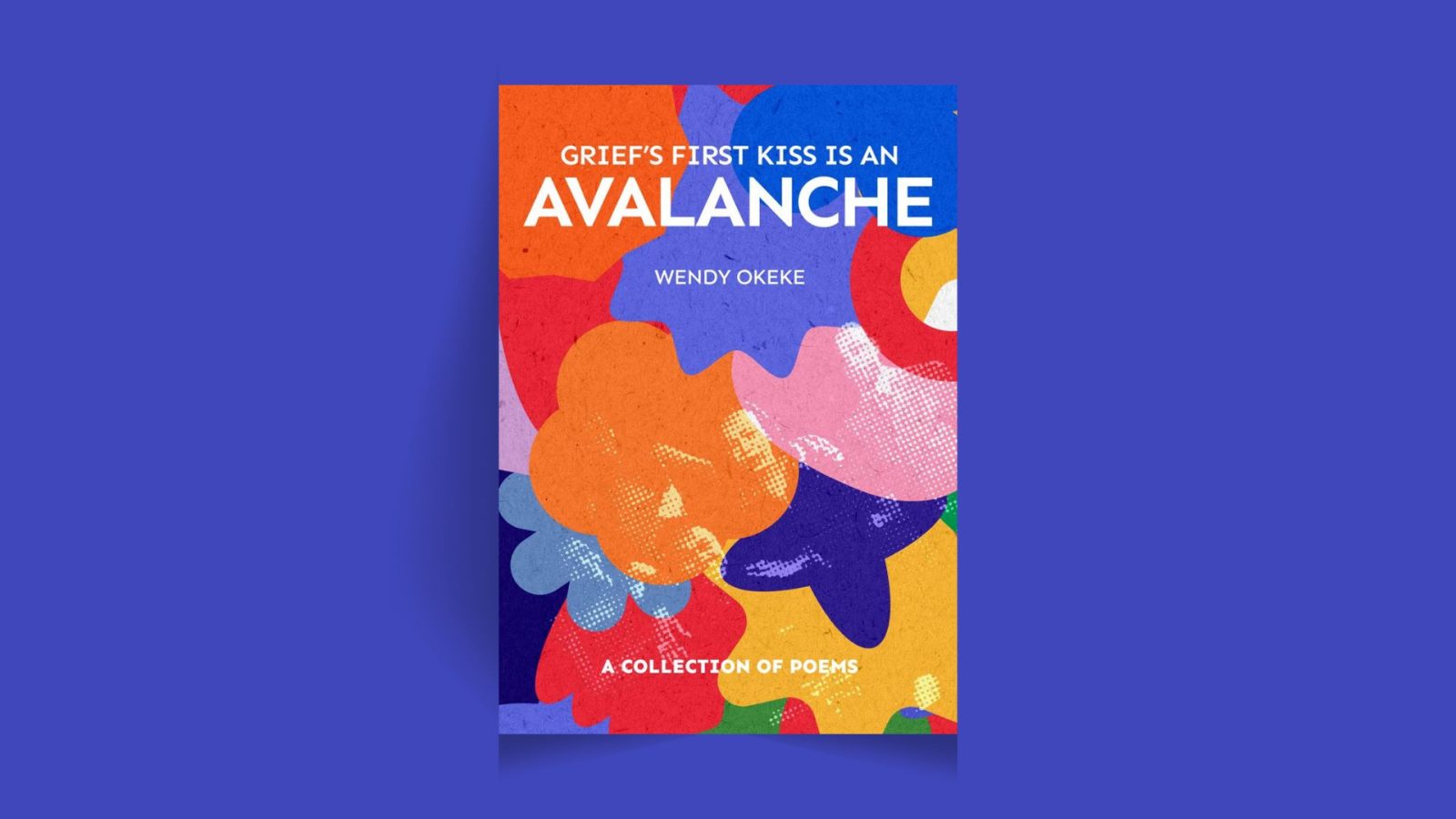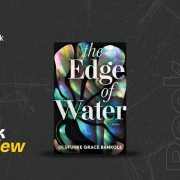Grief’s First Kiss is an Avalanche is a poignant meditation on love, loss, and the various forms grief can take.
By Evidence Egwuono Adjarho
Humans are essentially composed of two parts: the visible and the dark. This duality, with an emphasis on the darker side, has long been explored by writers like Edgar Allan Poe, particularly concerning the human psyche and emotions. In naming, these sides are Love and Grief.
Love is the emotion we readily reveal, the visible, while Grief lies dormant in everyone, until, inevitably, it surfaces. Using a microscopic lens, we discover that only a thin wall separates these two. Love is an overwhelming feeling of connection to another, while grief is an overwhelming response to loss.
Both evoke similar reactions in us: they shape, break, and transform, leaving lasting imprints. The only key difference, I daresay, lies in the context in which we experience them.
Grief’s First Kiss is an Avalanche by Wendy Okeke delves into this intertwined nature of love and grief, but places a nuanced and introspective focus on the latter. The collection of poems explores the loss of loved ones—a father, a lover, a friend—and examines how these losses manifest in the persona’s life.
The poems are evocative in the way readers feel, and also brittle in the way they explore the themes of loss, affection and longing.

Grief’s First Kiss is an Avalanche opens with “A Toast to a Man Who Always Lifted My Spirit”, a poem that explores the persona’s relationship with her father and the profound impact of his death. She reminisces about moments before his passing, illustrating how death both unites and separates.
Here, grief functions as a thread that binds people together while also forcing them to confront the ways in which loss alters their world. However, unlike some of the more emotionally intense poems in Grief’s First Kiss is an Avalanche, this piece does not immediately plunge into the depths of grief. Instead, it gently eases the reader into the book’s thematic journey.
This subtle introduction to loss is fully fleshed out in “Grief Is My Favorite Color”. The persona describes a room filled with people on “the last night after father’s burial”. Through her eyes, we observe the grieving faces: her sister, her dejected mother, her brother struggling to maintain a façade of strength despite his despair.
Yet, none of this truly matters to her. The presence of mourners, their prayers and their hymns, which are a major source of her disillusionment with religious platitudes, cannot resurrect her father.
This sense of helplessness is at the heart of “I Am a Place”, one of the most emotionally charged poems in Grief’s First Kiss is an Avalanche. Here, the announcement of the persona’s father’s death is depicted with visceral intensity. We witness a woman drowning in grief, her disbelief, horror, and pain palpable in every line.
Her screams reverberate through the poem, almost becoming audible to the reader. Her movements are frantic, disoriented—she collapses to the floor, unable to process the finality of her loss and some parts of us go down with her because we can relate with her pain. More than any other poem, we are immersed in the chaos and confusion that accompany sudden bereavement.

Yet, Grief’s First Kiss is an Avalanche does not limit itself to mourning the death of a parent. Grief takes on various forms throughout the collection, extending to the loss of lovers and friendships. “Reckless” centres on the regret of not loving fully.
The persona walks down memory lane, recounting experiences they denied themselves and opportunities they left untaken. Reading against the grain, the poem examines a universal human tendency: the inclination to take for granted what comes easily to us. It prompts the reader to reflect on their own choices and to question whether, in hindsight, they might regret their actions—or inactions.
Meanwhile, in “An Elegy to Friendship”, grief emerges in the form of a fading connection. The poem speaks of a once-vibrant friendship that has drifted into estrangement, and has left an irreplaceable void.
Wendy Okeke’s language in Grief’s First Kiss is an Avalanche is both refreshing and compelling. Certain poems invite the reader to pause—not due to difficulty in comprehension, but because each line demands careful contemplation to fully absorb its depth. “Yellow for My Warmth” is one such poem.
Its theme diverges slightly from the dominant focus on grief, addressing gender-based violence instead. Through phrases like, “I have mastered the art of silence/ plastering my prayers on my face/ as makeup”, the poem critiques religious doctrines that impose submission on women, and urges them to endure even the most painful marriages in obedience to their husbands.

The raw, unfiltered nature of Wendy Okeke’s writing reaches its peak in “I Consider Being Fucked by You a Type of Storytelling”. The language here as in many other poems in Grief’s First Kiss is an Avalanche pulsating with energy, the tempo sharp and unrelenting.
Here, the poet’s command of language shines as she transforms an intimate, almost seemingly mundane experience of sex into an act layered with poetic depth through imagery and religious metaphor, likening sex to a type of worship.
Ultimately, Grief’s First Kiss is an Avalanche is a poignant meditation on love, loss, and the various forms grief can take. Okeke does not merely depict grief; she dissects it, examines its contours, and presents it in ways that resonate deeply with the reader.
Through evocative imagery, rhythmic storytelling, and unflinching honesty, Grief’s First Kiss is an Avalanche captures the many faces of grief—its quiet moments, violent outbursts, lingering presence—such that readers are immersed in the storytelling and each poem becomes an experience lived through the persona.
Evidence Egwuono is a passionate literature enthusiast who spends her time lending her voice through her reviews. She is also a media enthusiast as she believes in the potency of visual storytelling, especially in amplifying the voices of women in society. Find her creating content on Instagram @evidence_egwuono and on LinkedIn.




